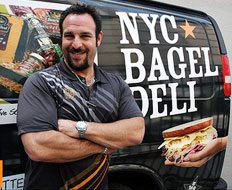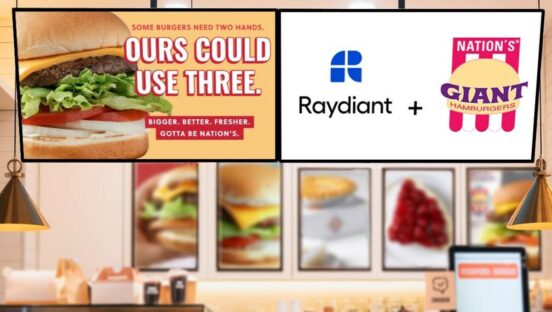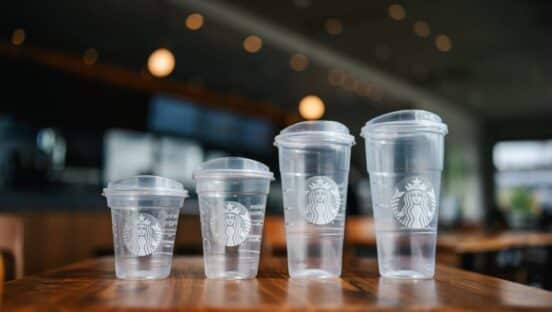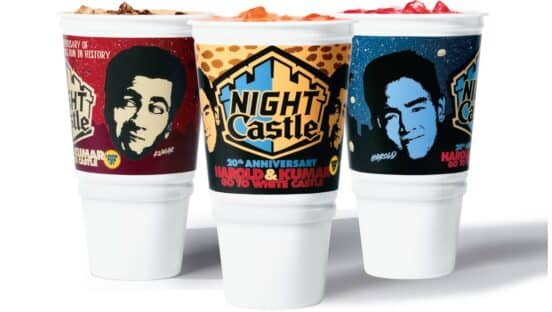Two years ago, daily-deal sites such as Groupon, LivingSocial, and a host of other regional and national players boomed as customers clamored for discounted products and services. Many of the sites eventually closed up shop as the trend faded and the space became too saturated.
The major daily-deal providers, though, have since adapted their offering with a suite of new services, and retailers like quick-serve operators have become smarter about the ways in which they use deals. They are not only using daily deals to provide an immediate sales lift, but also to build membership in their loyalty programs, build business at particular stores, and direct consumers’ attention toward new products and locations.
Denver-based Smashburger, for example, still uses Groupon on a somewhat regular basis in certain markets.
“We are a new brand, so we have relatively low awareness in some areas that we exist,” says Jeremy Morgan, senior vice president of marketing and consumer insights for Smashburger. “To introduce so many new people to the restaurant at once is really helpful.”
Smashburger’s most recent Groupon deal in August was $6 for $12 worth of food at specific stores in the Chicago market.
“We have tested several different offers, so we know that it is most profitable for us to run $6 for $12,” Morgan says. Because most of Smashburger’s burgers range from $4.99 to $5.99 each, $6 for $12 is very close to a “buy one, get one free” offer that resonates with customers, he adds.
After two years of using Groupon, Smashburger has found that customers redeeming the deals tend to come in with a group of people, so “the overall transaction ends up being higher” than the average Smashburger ticket, Morgan says.
Likewise, Burger King recently found success with a LivingSocial promotion, but one that served a different purpose than offering a discount on food and beverages. In one region, Burger King offered LivingSocial users a free burger when they signed up for the brand’s loyalty program.
“It was not a ‘50 percent off’ burger promotion, and it worked extremely well,” says Mitch Spolan, senior vice president of national accounts at LivingSocial.
While some restaurant operators shy away from using daily-deal sites, citing concerns about losing money on the deal or not garnering loyal customers, many independent restaurants and chains are still realizing success with the offers.
“[Quick-serve operators] are definitely using Groupon more because they see us as a great way to attract new customers through their doors during the times they need them the most,” says Nicholas Halliwell, spokesman for Groupon. In fact, Groupon’s total number of deals increased from 40,000 to 54,000 in the last quarter, Halliwell says.
Corey Kaplan, owner of NYC Bagel Deli, a three-unit concept in Chicago, says Groupon is one of the company’s primary tools for building long-term customers. The company sold 10,500 deals in its offer of $4 for $10 worth of food and beverages last May.
“I have critics tell me that I pay too much, but I am really happy with the cost,” Kaplan says. “The cost for each customer is around $4, and I have the opportunity for new people to walk into the business and to get future customers. You have to look at it as a long-term value.”
NYC Bagel Deli’s Groupon deals have paid off. Over the past year, sales have increased 27 percent on average at the brand’s three locations. “I attribute that to my overall marketing, but No. 1 by far is the Groupon deal,” Kaplan says.
Kaplan and others say restaurants need to prepare in advance to handle the onslaught of customers daily-deal sites can still bring, and should take advantage of the tools sites provide to effectively track daily-deal redemptions.
“Over time, working with Groupon, we have a real good sense of what our redemption curve looks like,” Smashburger’s Morgan says. “I can effectively put some limits in place and know how many vouchers I want to sell. I am also quickly able to see how many vouchers I did sell, and adjust my labor plan accordingly with the team.”
Jim Sofranko, national sales manager for Groupon, says operators should understand that there is no one-size-fits-all approach to running a daily deal. “We have to understand that merchant’s business, including their systems and personnel,” Sofranko says. “We can help them based on the POS systems they have in place.”
Major daily deal sites are also offering new tools and services that help quick-service operators realize incremental value when they run daily deals. For example, LivingSocial weaved online-ordering capability into its offers for restaurants after it acquired ordering provider ONOSYS last year. LivingSocial is now working with Papa John’s, KFC, and other brands.
“We provide a redemption loop, where consumers can buy the daily deal and order the food online,” says Stan Garber, cofounder and partner at ONOSYS.
New this year, Groupon’s clients can run deals with the site on a continual basis instead of running a deal for a limited period of time. “Once they reach a monthly limit determined by them, their deal goes off the site until the next month,” Halliwell says.
Groupon also touts its penetration on users’ mobile devices, since many quick-service customers are using smartphones. “Nearly 50 percent of our transactions occur on mobile devices, and more than 50 million people worldwide have downloaded the Groupon mobile app,” Halliwell says.








